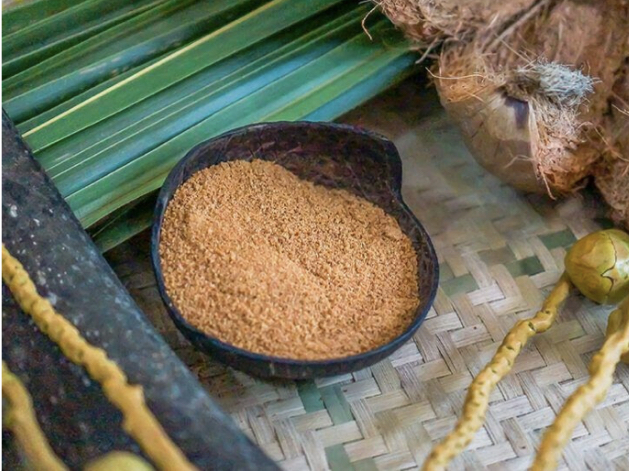
Coconut palm sugar: Is It Safe?
Coconut sugar, sometimes called coconut palm sugar, is made using the sap of a coconut tree flower.
Though it has a low glycemic index, (GI), it still contains the same amount of carbohydrates and calories as other sugars.
One of the most popular natural sugars is coconut sugar.
Many coconut sugar makers proudly tout coconut sugar’s ranking on the GI.
Coconut sugar’s average GI rating differs from source to source. Regular sugar has an average rating of 58, while coconut sugar’s GI is reported as low as 35 and as high as 54.
A food’s GI rating measures how much that food may raise your body’s glucose or blood sugar.
Coconut sugar has a slightly lower GI rating on most scales. On average, anything below 55 is considered low.
Regular table sugar typically falls in the middle range. The middle range generally covers ratings from 56–69. Anything with a rating above 70 is usually considered to have a high GI.
Coconut sugar also has similar amounts of fructose as table sugar.
That means that eating coconut sugar carries the same health consequences as eating excess added sugars, including an increased risk of developing obesity and chronic diseases.
Treat coconut sugar like any other sweetener if you’re interested in using coconut sugar in your diet.
Coconut sugar provides the same level of nutrients as refined white sugar. One teaspoon has roughly 15 calories and 4 grams of carbohydrates.
The processing of regular white sugar and coconut sugar is essentially the same as table sugar, and chemically, they are about 50% glucose and 50% fructose.
Coconut sugar is touted as more natural, but it still has a real impact on your calorie and carbohydrate levels.
Coconut sugar adds a brown hue to whatever food or drink it’s an ingredient in.
Coconut sugar is quickly gaining popularity because of its flavor and description as “natural” sugar. Finding it in your local grocery store should be easy.
But remember, natural sugars still have calories and carbs and can raise blood sugar. “Natural” does not mean it won’t affect blood sugars.
In summary, Coconut sugar’s average GI rating is 50–54, similar to regular white sugar’s GI. It also has the same number of carbs and calories, which means it will affect blood sugar and the body like regular sugar does.
Some manufacturers mix coconut sugar with raw cane sugar and other ingredients.
Read the ingredients list before purchasing. Keep it stored in an airtight canister to prevent clumps.
Enjoy using coconut sugar in your baking and cooking for a change of flavor or to add complexity to dishes.
.

.webp)
